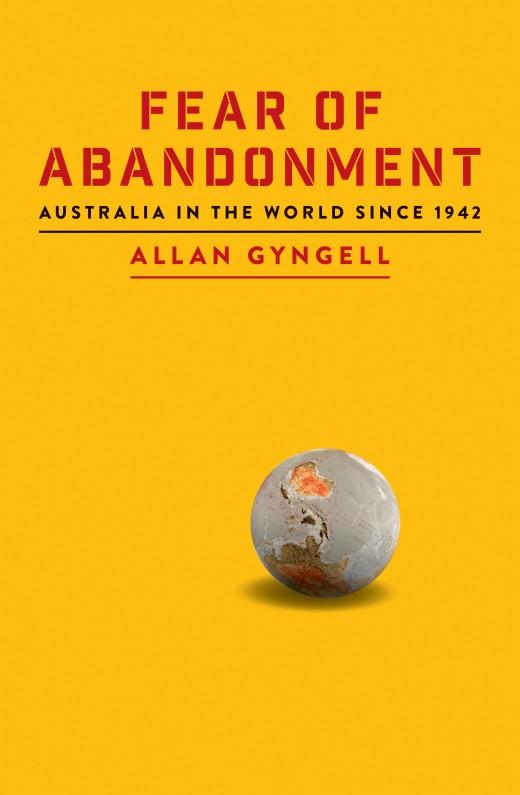From the bookshelf: 75 years of Australian foreign policy
Posted By Peter Edwards on June 5, 2017 @ 14:30
By interesting coincidence, Fear of Abandonment, an important book on the history of Australian foreign policy, appears 50 years after a book with which it has some interesting parallels.
In 1967, Alan Watt published The Evolution of Australian Foreign Policy. Watt was one of the handful of diplomats who created the Department of External Affairs in the late 1930s and 1940s. After serving as secretary of the rapidly growing department in the early 1950s, Watt held ambassadorial positions before retiring to a fellowship at the Australian National University, where he wrote the book.
Watt’s book attracted less attention than it deserved, partly because Australia was engaged in what would become our longest and most controversial war of the 20th century, in Vietnam. The bases of the foreign policy of which Watt wrote, and which he had helped to shape, were under challenge. In fact, 1967 was the year in which, as noted here, the Australian Government turned away from enthusiastic commitment to Vietnam, towards withdrawal.
Fifty years later, we have another history of Australian foreign policy, written by an experienced practitioner-turned-academic. It appears as the country is engaged in an even longer war than Vietnam, and once again debating whether the American alliance is leading us into dangerous territory.
Allan Gyngell is one of a notable cohort of diplomats who joined External Affairs (later renamed Foreign Affairs) in 1969. He has been Director-General of the Office of National Assessments, the founding director of the Lowy Institute and senior foreign policy adviser to Prime Minister Paul Keating, and is now based at the Australian National University. The recent retirement of Dennis Richardson from the Defence Department probably marks the last official position held by ‘the 69ers’, but not of their enduring influence on Australian national security policy.
Fear of Abandonment is a comprehensive, yet concisely and clearly written, history of Australian foreign policy since 1942. It is, as Gyngell says, ‘prologue, not prediction’, but anyone who wants to understand what Australian foreign policy could and should be in the future needs to know its past. This book is essential reading for anyone—whether parliamentarian, official, academic, or engaged citizen—who wants to understand, and perhaps to influence, how Australia interacts with the rest of the world.
Gyngell takes 1942 as his starting point because that was when Australia ratified the Statute of Westminster, which gave the dominions of the British Empire the right to have their own foreign policies. He might have noted that 1942 was also the year of the fall of Singapore, the Coral Sea battle and much else that profoundly affected the Australian psyche.
From there, Gyngell tells his story in a series of short essays, grouped into nine wide-ranging chapters. The first three chapters raise what Gyngell sees as the three major themes of Australian foreign policy: engagement with Asia; the search for great and powerful friends; and support for a rules-based international order. The next five develop those themes through the 1970s, the 1980s, the 1990s, 1998–2008, and 2008–2016. Gyngell’s emphasis is on the continuity between governments, rather than differences, which are often overstated for domestic political reasons. A final chapter briefly but incisively summarises the vast changes in Australia and its international environment since 1942, suggesting that we need a fundamental re-assessment of foreign policy and inviting his readers to help shape its new directions.
Gyngell’s narrative and analysis are succinct and precise, free of jargon and often leavened with dry wit. Some readers will find some judgements too understated, such as describing Gough Whitlam’s policy on Timor as ‘wishful thinking disguised as foreign policy’, or saying that John Howard’s government ‘followed [the US] not blindly … but … unthoughtfully’ into Iraq and Afghanistan. Gyngell’s nuanced, accurate and understated account and his sharp pen-pictures of the major players balance errors with achievements, enabling the reader to see not only what went wrong but also how and why.
At first sight, the title seems curious, because ‘fear of abandonment’ is usually regarded as the basis of Australia’s search for great power allies, rather than of Gyngell’s other two enduring themes. Engagement with Asia is usually seen as reflecting confidence rather than fear, while Australia’s efforts to support a rules-based international order, often involving creative diplomacy, are regarded as a way of reconciling the demands of global alliances and regional engagement. In that sense, The Evolution of Australian Foreign Policy would have been a more appropriate, if less eye-catching, title for this book, but Alan Watt had already taken it. But perhaps Gyngell is right and, at a deeper level, the fear of abandonment underlies all three.
Gyngell keeps his focus firmly on successive prime ministers and foreign ministers, saying less than one might expect about the contribution of their departmental officials. To do otherwise might have looked like special pleading from someone who has held senior appointments in several departments, as well as heading the Lowy Institute, which has published important reports on Australia’s ‘diplomatic deficit’. But when Colin Powell is describing the proposed cuts to America’s diplomatic and aid budgets as ‘penny-wise and pound-foolish’, we should ask whether Canberra similarly places too much emphasis on military assets and too little on its diplomatic and other ‘soft power’ tools. If Australian governments since the 1940s had not invested in their foreign policy machinery, we wouldn’t have had the great contributions of the 69ers, and their predecessors and successors, of which this valuable book is the latest example.
Article printed from The Strategist: https://aspistrategist.ru
URL to article: /bookshelf-75-years-australian-foreign-policy/
Click here to print.
 By interesting coincidence, Fear of Abandonment, an important book on the history of Australian foreign policy, appears 50 years after a book with which it has some interesting parallels.
By interesting coincidence, Fear of Abandonment, an important book on the history of Australian foreign policy, appears 50 years after a book with which it has some interesting parallels.